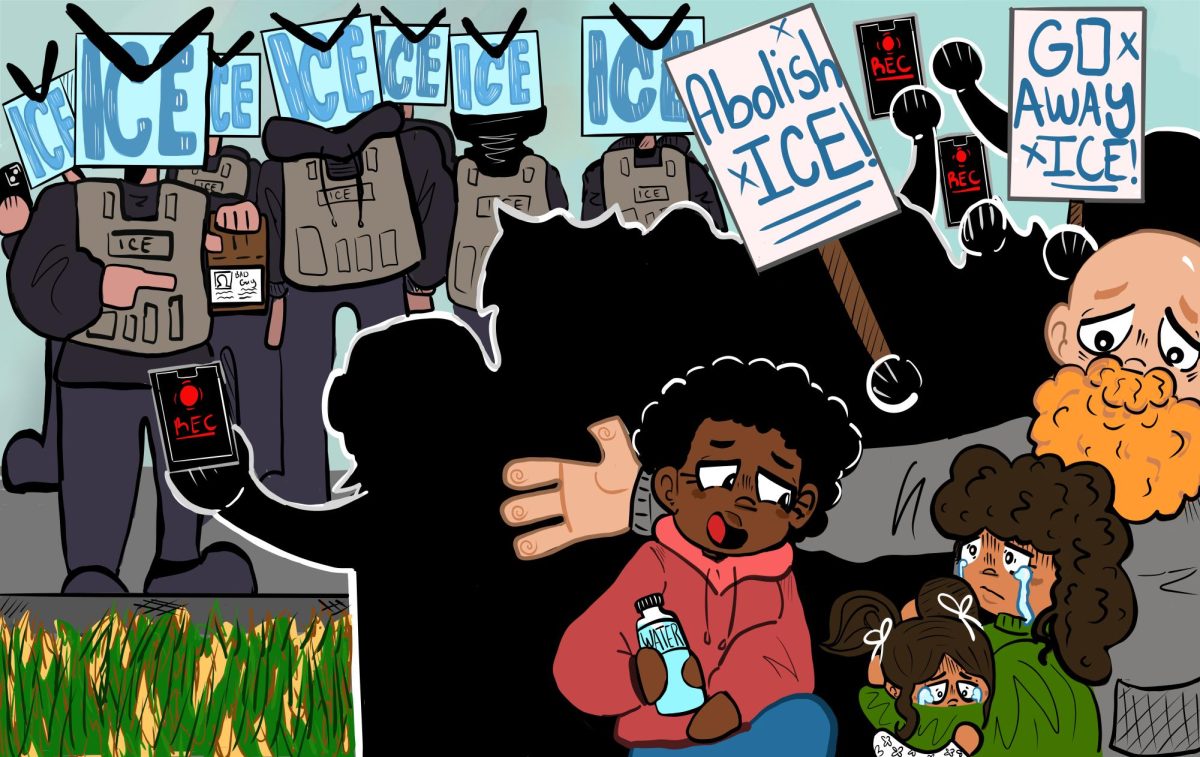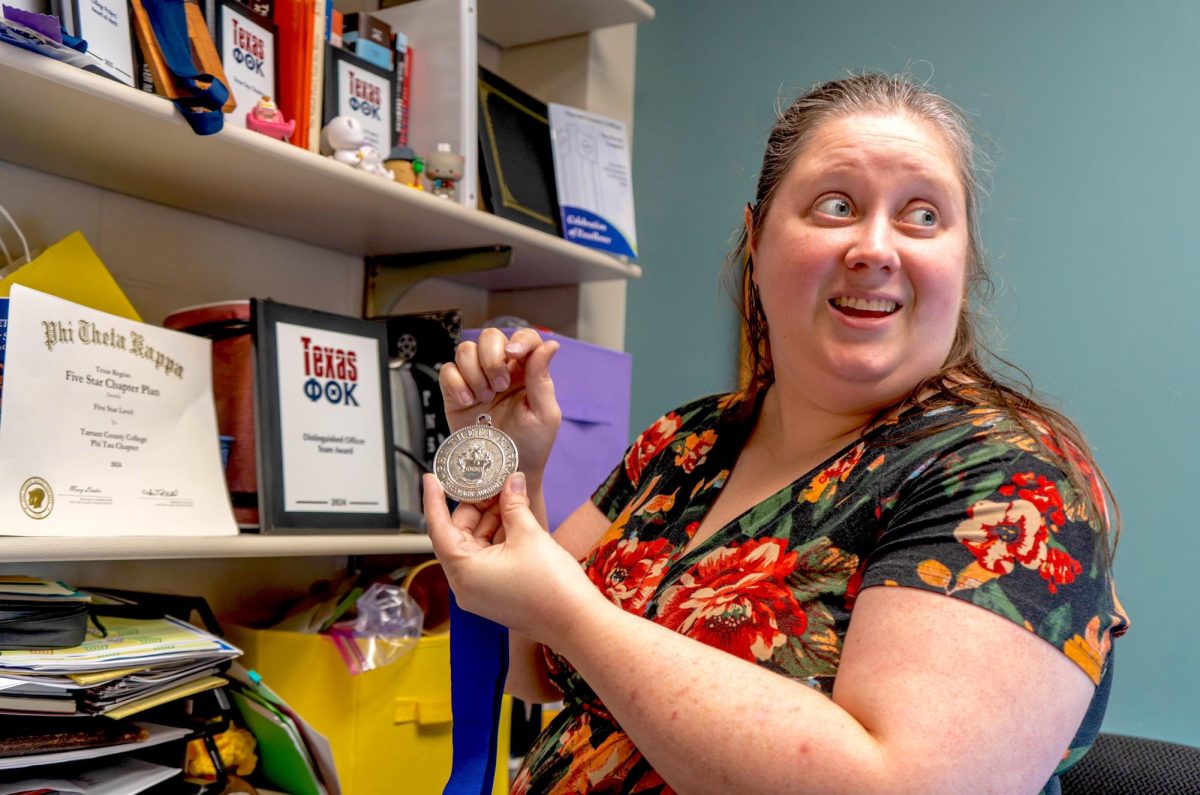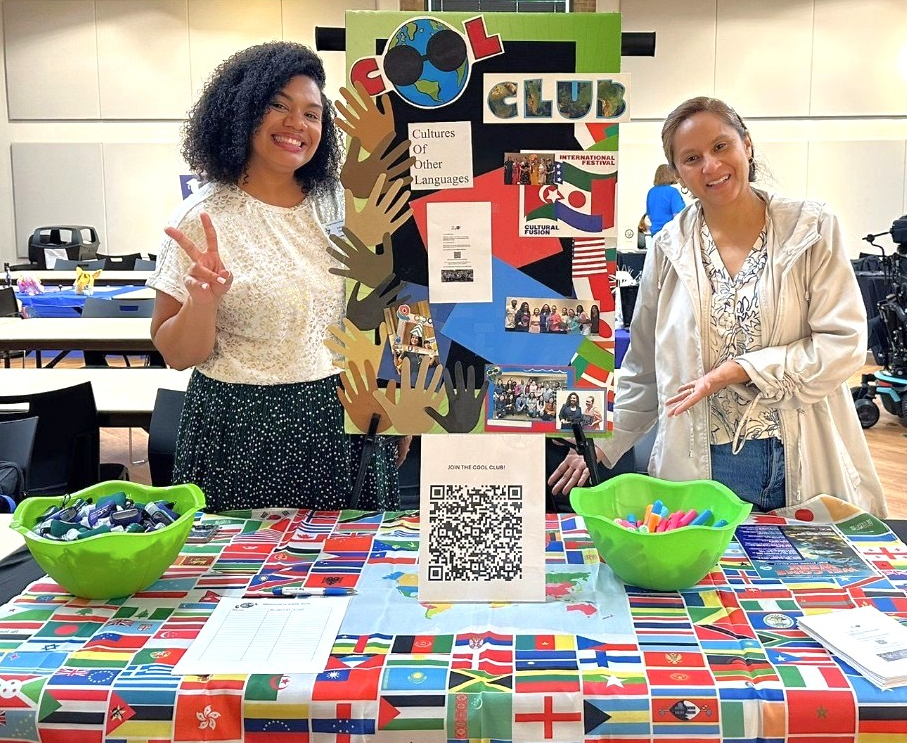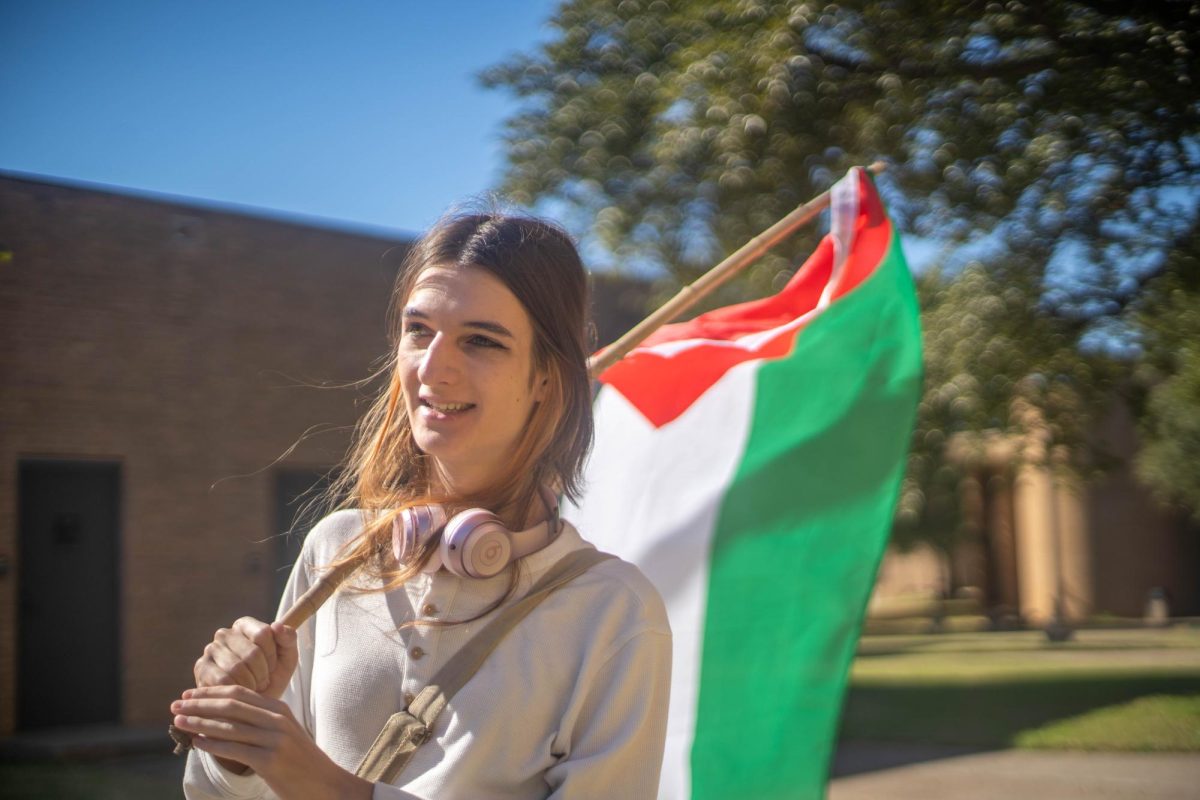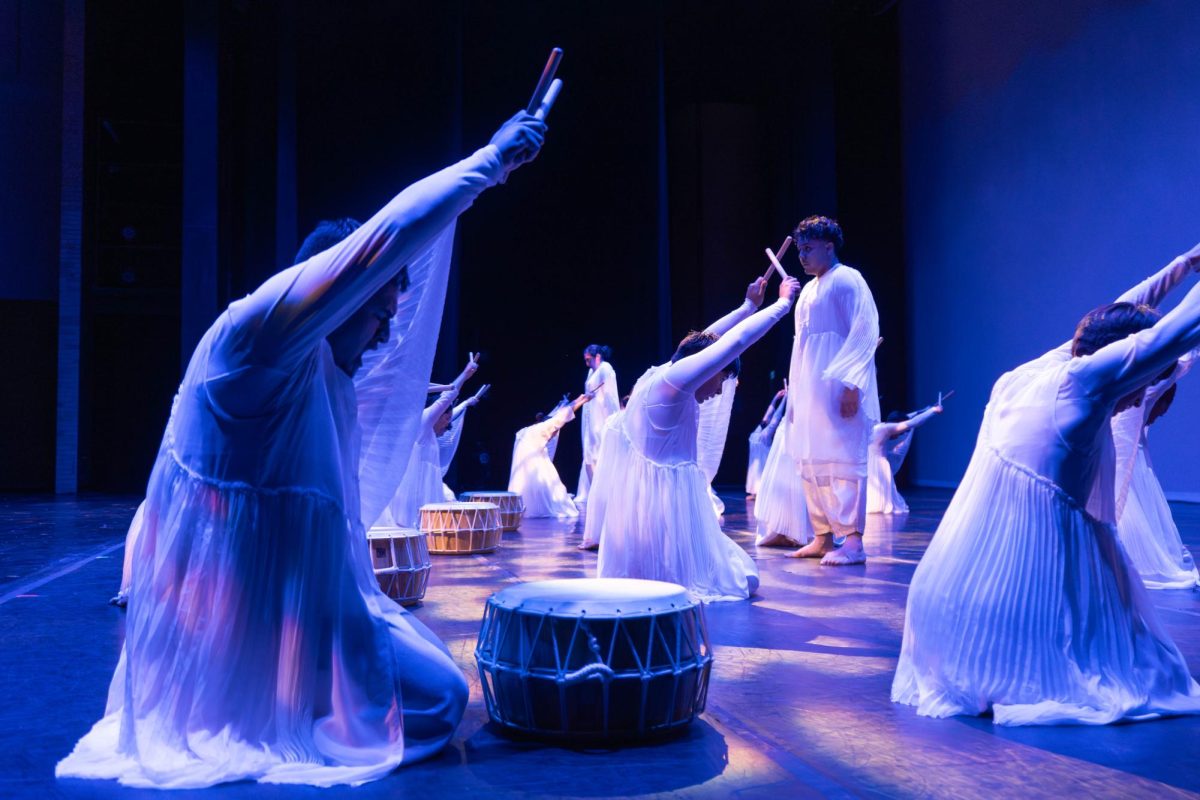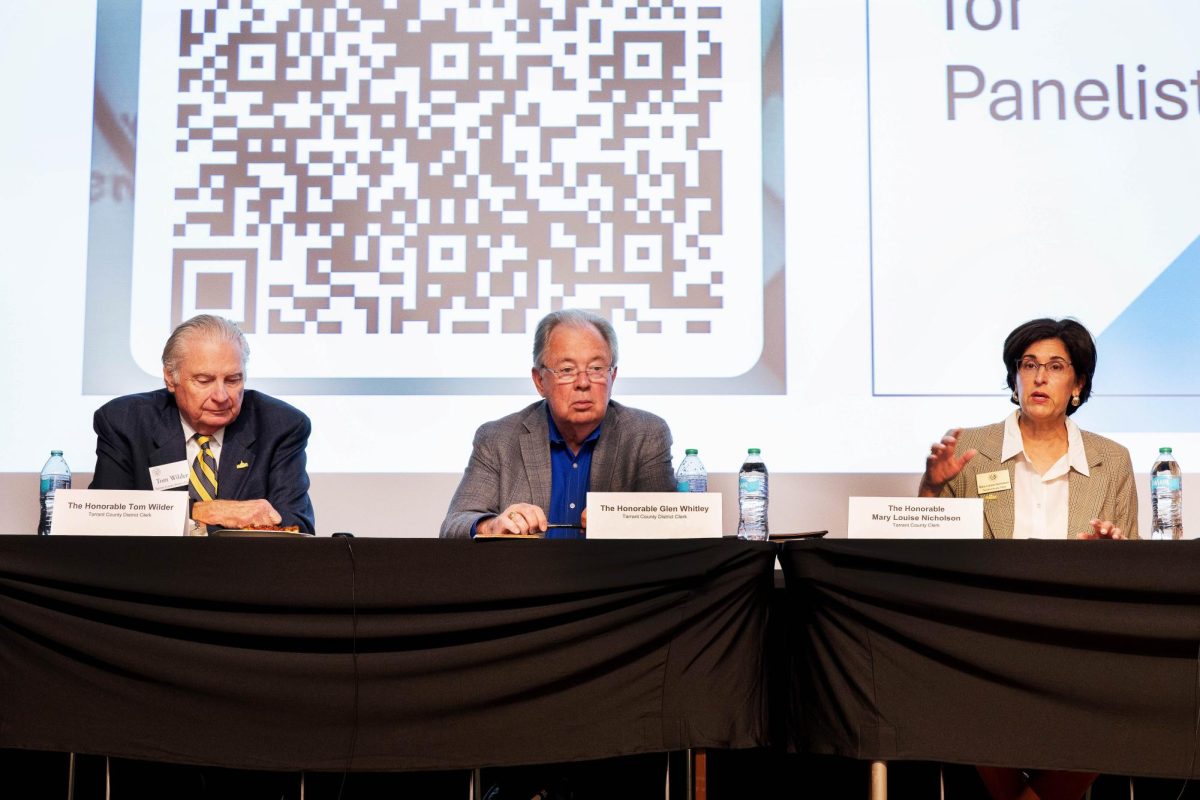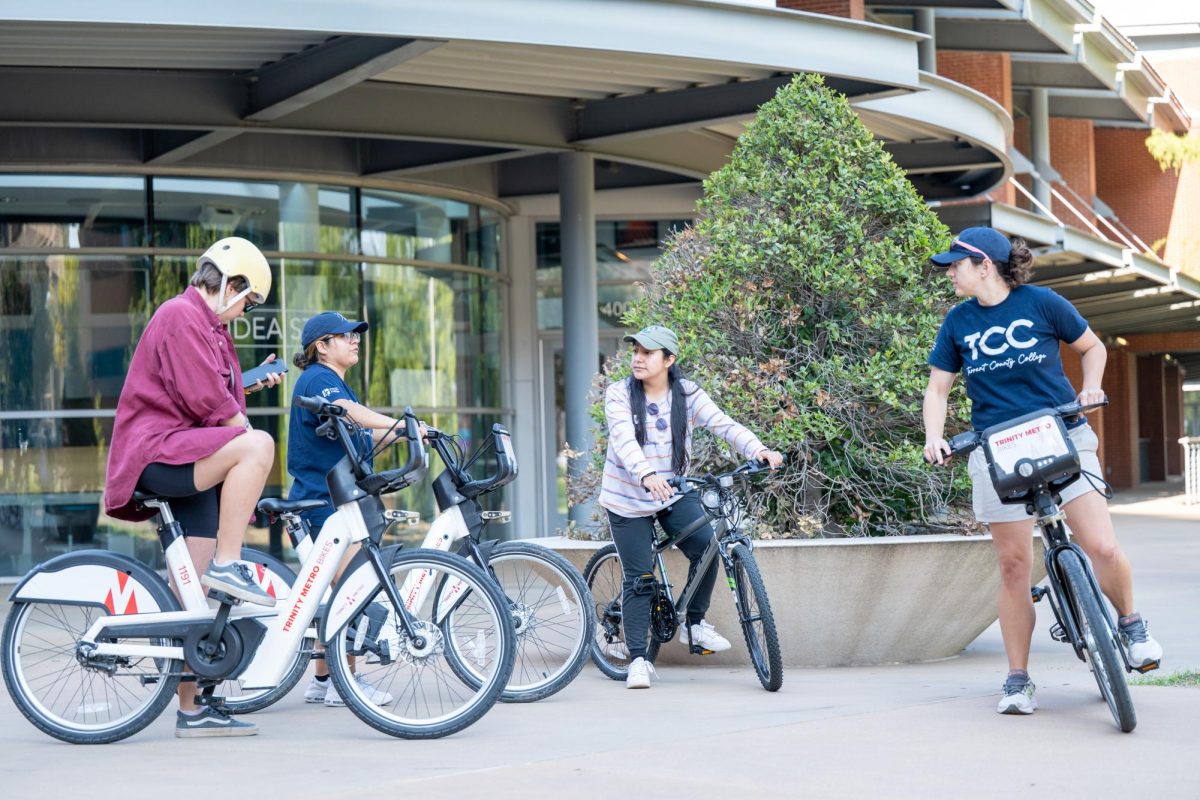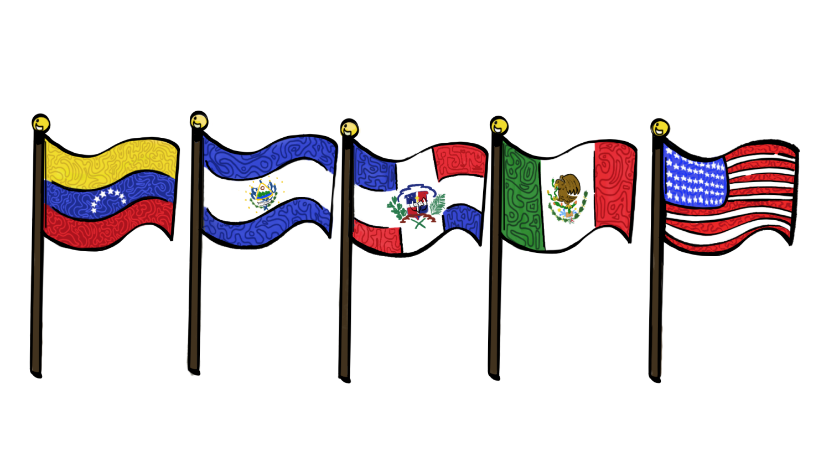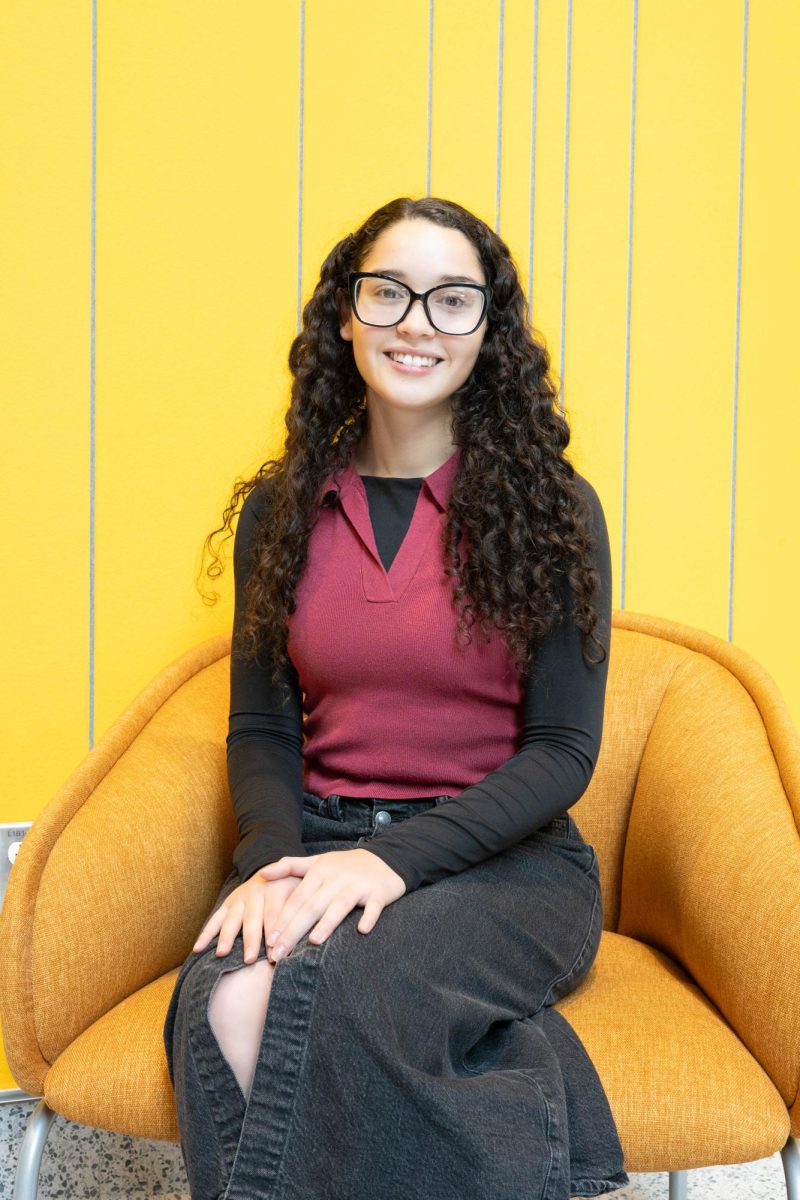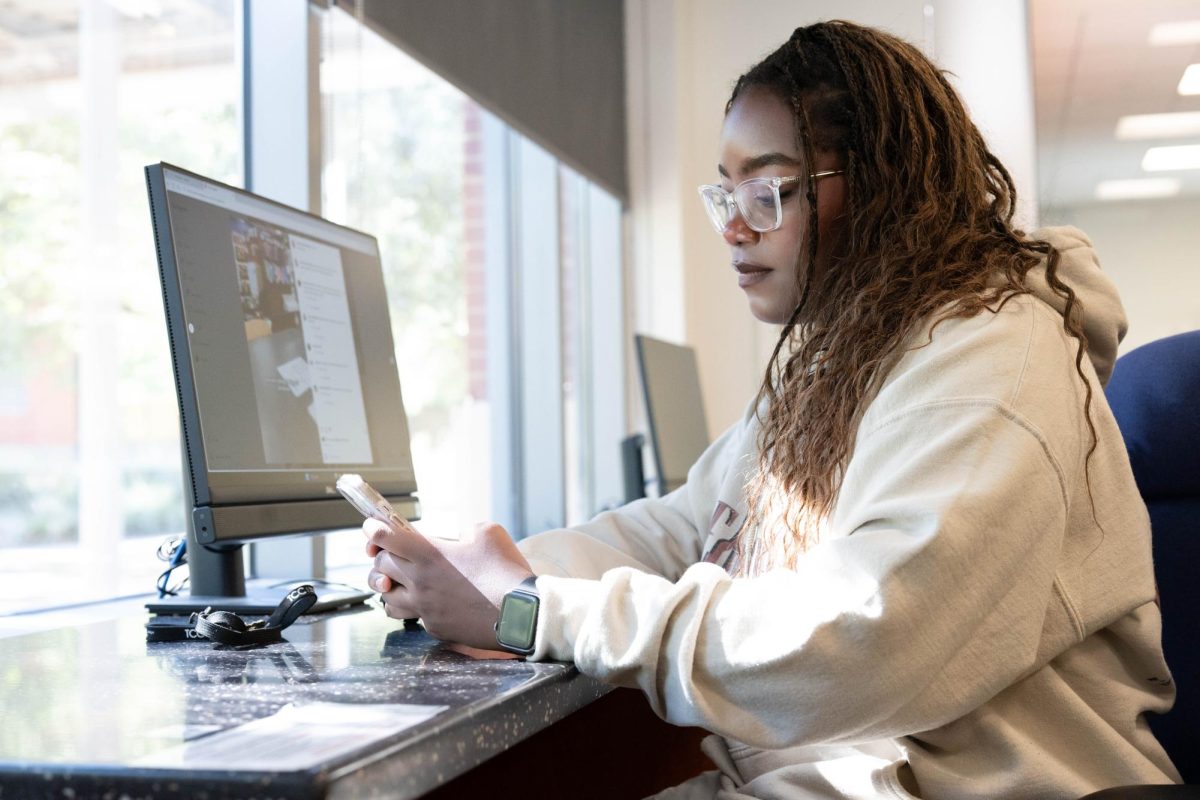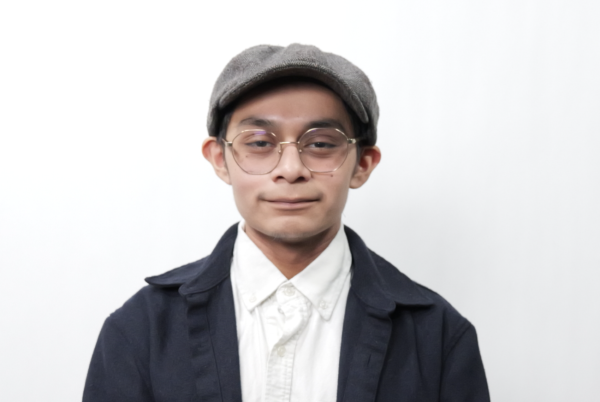NE history instructor Samantha Elkins is an adviser for the NE chapter of the honor society Phi Theta Kappa. She shared her experience of working with students at PTK and why she believes students should be more involved on campus in an interview with The Collegian.
Q: What exactly do you do at PTK?
A: I’m currently the PTK lead adviser. We have a lot of advisers for PTK, and that’s really good, because a lot of what we do is we are helping the students maintain our five-star chapter status. A lot of stuff for me is we tend to put at least one adviser email on all of our flyers. People reach out, ask questions. There’s a lot of weird paperwork stuff that has to be done for PTK. Now I am so thankful because one of my advisors, Peter Martinez, he’s been a PTK advisor longer than me. One of the things he does is even more of some of the PTK background stuff. He does a lot of the core stuff with the PTK website. So, a lot of it’s that kind of stuff, but then a lot of its institutional knowledge that can help out our officers. We do not do it for them. They are the ones that come up with the ideas, do the research, implement the ideas, and that one’s more community oriented.
Q: Do you enjoy working with PTK?
A: I love working with PTK. It honestly is one of the most fun things I get to do. It can be stressful, mostly because you worry about the students, but you get to know the students so well. And it’s even more fun when sometimes a student has taken your class and so then you even knew them before they become an officer, and you get to see them grow because so much of what we do at TCC is we’re preparing you guys for life beyond TCC. But in many ways, what they’re doing at PTK almost feels beyond TCC anyway because they’re already looking at their community impact. They’re already looking at bettering the college, not just as a student even. And each year you basically get a new officer team and the students they’re all different every year. So you never know what kind of personalities or what kind of things are going to come up or what problems, but also you get different problem solving techniques I get to learn from them, ideas that I’ve never done before and it’s really so fun to see what things they bring to the table and you get to know them really personally. You get to see that personal growth. It’s like my favorite thing.
Q: What kind of skills do students develop at PTK?
A: The four pillars of PTK that they build off of is leadership, service, scholarship and fellowship. Those are one of the biggest skills, like leadership skills. I definitely see my officer team really develop those. But there’s so many other skills that get the opportunity to develop as well, coming to meetings, developing friendships. So, you can have that fellowship that really develops. You get to see them develop just confidence, stronger friendships, which then leads to more confidence. You get this kind of community, which is really nice to have. Quite frankly, it’s wonderful.
Q: How has PTK influenced the TCC community?
A: We’re involved. That’s one of the biggest things. We are 100% involved. This officer team, when they’re originally going for elections, they have to interview with an adviser, and a big bulk of the officers this last year, every one that I interviewed was like “I want a community, I want a community here at TCC, I want more community for students even if they’re not PTK members.” It was about building a [feeling] of you’re not the only one, and seeing that helps with resilience. … This is meant for everyone. This is meant to help everyone, and we want to build that, and so a lot of our college projects focus on that.
Q: What kind of advice would you give for students interested in PTK?
A: First one is join Pre-PTK, mostly because then you’re already getting involved. Come to PTK meetings. You don’t have to be a member to come to our meetings. The other thing is just take advantage of all the different resources our campus has. Get help if you’re struggling in classes and you’re wanting to join.
Q: Do you encourage students to run PTK?
A: We try to make the students do as much of it as possible. We don’t write for them. The big stuff that is all put into the PTK system, we don’t do that. When we do a certain kind of paperwork going through Student Activities, we’ll sit down and do it with somebody so they can see how to do it and what kinds of things to do in the future, and then it’s their responsibility to do that from now on. We want to show them the ropes but at the end of the day, it’s kind of up to them. Obviously, we don’t want them to get overwhelmed with what they do, and they do a lot. When it comes to the actual running the meetings and all that, we try to refrain from doing that most of the time. At the end of the day, it is student-led. They’re the ones deciding … what is important.











